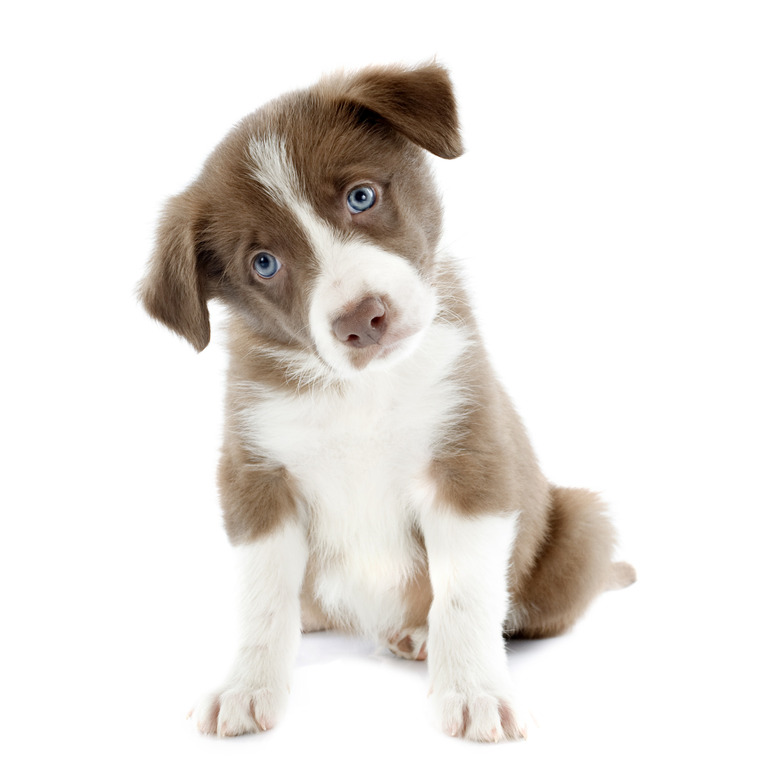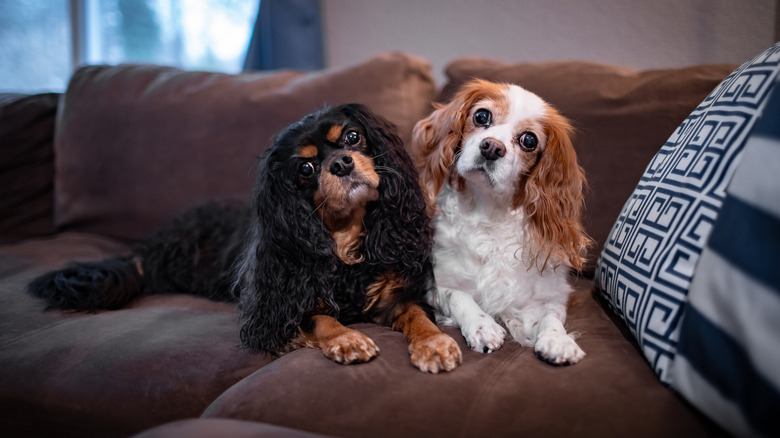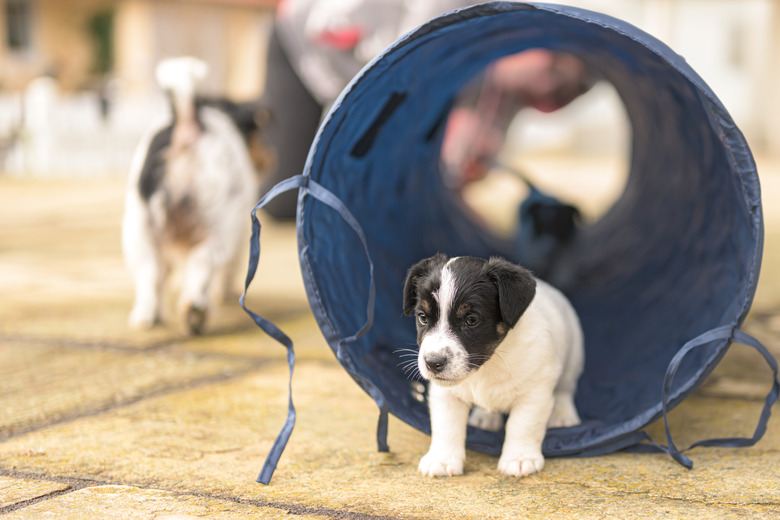Does Teething Cause Diarrhea In Puppies?
Does Teething Cause Diarrhea in Puppies?
Puppy teeth start to come in at around 2 weeks of age. The process of puppy teeth and adult teeth coming in can last until puppies are up to 10 months old. Dr. Jordan Kautz, a veterinarian at Crestview Veterinary Clinic in Austin, Texas, explains that during this teething stage, pups can develop an upset digestive system with diarrhea and sometimes vomiting. A young puppy with diarrhea, loss of appetite, or vomiting should visit their veterinarian because puppies can dehydrate quickly.
Timing your puppy's teething
Timing your puppy's teething
A puppy has 28 teeth that come in by the time they're 8 weeks old. These teeth, called milk teeth, allow your pup to begin eating and digesting solid food. By the time your pup is 3 to 4 months old, their central incisors begin to fall out, followed by the canine teeth and then the premolars.
The chewing that defines puppyhood will alert you to intense teething times, or you may find tiny teeth around the house. Adult teeth may be right behind the puppy teeth in the gum, adding to your pup's discomfort and need to chew. If you're not sure exactly how old your new puppy is, ask your veterinarian when your pup goes in for vaccinations.
Digestive upset while a puppy is teething
Digestive upset while a puppy is teething
As your puppy loses teeth and the replacements erupt, they will drool more frequently. In rare cases, swallowing this fluid can upset their digestion and cause diarrhea. "But it is much more common for GI issues to be caused by eating something they should not eat," says Dr. Kautz. "It's very rare to be caused by excessive salivation and swallowing." Intestinal parasites, like roundworms, giardia, or coccidia, can also be the culprit.
When they're not crunching kibble, a teething puppy will chew on anything they can get into their mouth, so be sure your house is puppy-proofed during this time period. You'll also want to stock up on safe chew toys for pups.
Keep a close eye on your puppy when they are outdoors. Teething pups will chew sticks, rocks, and other outdoor debris. This can cause stomach upset or even blockages. It's also safer to avoid high-traffic areas in public where other dogs have pooped. If your puppy is not done with all their vaccinations for distemper and parvovirus, they can easily become infected.
Treating puppy diarrhea
Treating puppy diarrhea
Commonly shared advice used to be to withhold food when dogs would have a digestive upset, but veterinarians don't recommend that. "Withholding food from your puppy while they have diarrhea is no longer advised," said Dr. Kautz. "Instead just start offering a bland diet, and if diarrhea continues longer than 24 hours seek vet care." When offering a bland diet, your pup can have boiled chicken breast that's shredded and mixed with white rice in small, frequent amounts. A puppy should always have access to water. Add warm water to the chicken and rice mixture to increase fluid intake.
If you don't have time to cook for your pup, ready-made bland diets should be available at your veterinarian's office. If your puppy has a loss of appetite or diarrhea for longer than 24 hours, call your veterinarian. But if your pup is a toy or small breed and isn't eating for even part of the day, they have a higher risk for low blood sugar, called hypoglycemia. In this case, call your veterinarian the same day.
See the veterinarian
See the veterinarian
If your puppy has an upset stomach or diarrhea, call your veterinarian for instructions. Although diarrhea in an adult dog can be less serious, a puppy can dehydrate quickly, and complications can arise. Your veterinarian will tell you whether you can wait and observe the puppy or ask you to schedule an appointment to check for other causes, such as parvo or intestinal parasites.
If the diarrhea is accompanied by vomiting, blood, lethargy, or abdominal pain, don't wait. These are common symptoms of serious problems. If your pup is producing no poop at all, an intestinal blockage is possible. Take your puppy to the veterinarian as soon as possible. Your veterinarian may collect a stool sample for testing.
The bottom line
The bottom line
While your puppy's baby teeth and adult teeth are coming in, they will frequently drool. It's rare that swallowing the extra saliva can cause puppy diarrhea. It's more likely for them to have loose stool from something they ate. Parvovirus; distemper; and intestinal parasites, like roundworms, giardia, or coccida, are also concerns. If your puppy has an upset digestive system for more than 24 hours, contact your veterinarian.


